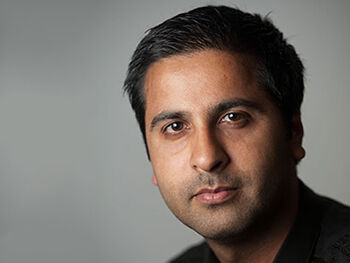In Industry Last updated 30 June 2020

Today (Tuesday 30 June) is World Social Media Day, which recognises and celebrates the impact of platforms such as Facebook, Twitter and Instagram on global communication.
While recognising social media’s role in keeping family and friends in touch or spreading knowledge about places and cultures, there is a darker side to these platforms which Criminology Professor Imran Awan explores in his article ‘Social media helps reveal people’s racist views – so why don’t tech firms do more to stop hate speech?’, which was published in online news outlet The Conversation recently.
Professor Awan argues that removing right-wingers such as Katie Hopkins from Twitter permanently is a starting point, but “for every right-winger like Hopkins, there are many more people on social media who don’t command such a large following and might be seen in some respects as ordinary people, but who are in fact equally as dangerous”.
He shows us through his extensive research into online Islamophobia that racists are not just members of far right groups or “obvious racists”, but people simply joining in with conversations targeting vulnerable figures. Their posts may not say anything specifically racist, but will inflame racial tensions.
Professor Awan sees “identifying other individuals who are less obviously spreading hatred, often under the protection of anonymity” as the way forward for social media companies to change attitudes and reduce social media’s significant capacity for harm.
Professor Awan is an expert member of the behavioural science subgroup of the Scientific Advisory Group for Emergencies (SAGE), which feeds directly in to government advice on Covid-19.
If you would like to publish an article in The Conversation, get in touch with External Relations Manager Peter Cameron for more information and to guide you through the process.